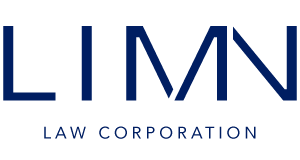A new Code of Conduct for the leasing of retail premises in Singapore will be effective from 1 June 2021 (the “Code”).
The primary objective of the Code is to set out clear leasing guidelines and negotiation principles for landlords and tenants in Singapore.
Set out below are some of the key points of the Code which all landlords and tenants should take note of:
Application of the Code
The Code applies to all Qualifying Retail Premises located in shopping centres, office buildings, industrial and business parks, shop houses, MRT stations, bus interchanges and airports.
Qualifying Retail Premises are premises held under a lease agreement entered into on or after 1 June 2021 with a tenure of more than one year and permitted by the Urban Redevelopment Authority for any of the following uses:
- Food & Beverage,
- Shop,
- Medical / Dental Clinic / Aesthetic Clinic,
- Pet Shop and Pet Boarding,
- Commercial School,
- Sports and Recreation / Place of Entertainment.
The Code comprises four main features.
Conduct and Spirit of Negotiations
The Code requires landlords and tenants to negotiate in good faith in the conduct of negotiations of lease agreements of Qualifying Retail Premises. This means a party must not deliberately or by negligence mislead or misrepresent to the other party as to the nature or terms of the proposed lease or by not disclosing facts which should have been disclosed.
Leasing Principles for Key Tenancy Terms
The Code sets out mandatory requirements for lease agreements of Qualifying Retail Premises. These include the following:
- No exclusivity or radial clauses: As a general rule, exclusivity or radial clauses which prevent a tenant from opening a branch or franchise within a specified radius of the Qualifying Retail Premises or which prevents or restricts a landlord from leasing premises with a similar trade or business within the same building, whether during or after the end of the lease, cannot be included unless there are exceptional grounds and both landlord and tenant agree, in which case a joint declaration must be made to the Fair Tenancy Industry Committee within a specified period.
- Costs relating to Lease and Third Party Costs: The Code sets out the type of costs that a landlord may charge a tenant in appropriate circumstances. Costs such as those relating to Point-of-Sales system (POS system), which enables a tenant to share sales data with the landlord, costs to prepare the lease agreement and costs of Public Liability Insurance are some of the type of costs, which the Code addresses.
- Pre-termination by Landlord due to Landlord’s Redevelopment Works: Where the landlord requires a right to pre-terminate the lease due to redevelopment works such as asset enhancement works to increase shopper traffic or increase shopper circulation at upper levels of a retail development, the lease agreement must expressly contain provisions granting the landlord such a right of pre-termination. The right of pre-termination cannot be exercised if vacant possession of the premises is not required for the redevelopment works. This means external asset enhancement works will not entitle the landlord to pre-terminate.
- Sales Performance: As a general rule, sales performance clauses allowing the landlord to pre-terminate the lease agreement if the tenant fails to meet a specified sales target, must not be included in the lease agreement unless there is an exceptional basis and both parties agree to such inclusion, in which case a joint declaration must be made to the Fair Tenancy Industry Committee within a specified period.
- Material Adverse Change: Landlord and tenant are encouraged to re-negotiate the lease agreement in the event the tenant is prevented, obstructed or hindered from carrying out its typical business at the leased premises due to events beyond the tenant’s control, such as store closure as a result of compliance with regulatory authorities’ requirements due to COVID-19.
- Pre-termination by Tenants: The Code sets out two exceptional conditions in which the tenant is entitled to pre-terminate the lease, namely, where the business principal of the goods from which the tenant has obtained the right to sell the goods becomes insolvent, or where the tenant loses its distributorship rights or franchise rights, at no fault of the tenant.
- Security Deposit: The security deposit amount for Qualifying Retail Premises with a floor area of up to 5,000 square feet and with a lease term of up to 3 years shall not exceed an amount equal to 3 months’ gross rent, unless both the landlord and tenant agree to an alternative security deposit amount in which case a joint declaration must be made to the Fair Tenancy Industry Committee within a specified period.
- Floor Area Alterations: For each new letting, the landlord must provide a certificate from the registered surveyor confirming the surveyed area of the premises prior to handover. In the event the surveyed floor area deviates from the floor area specified in the lease agreement, there shall be a corresponding adjustment of gross rent and security deposit as provided for under the Code.
- Building Maintenance: Landlords must be responsible for any loss or damage suffered by the tenant due to gross negligence or wilful default on the part of the landlord to maintain the building at the leased premises. This immediately imposes on landlords a duty of care to ensure that the premises and common property are tenantable. A water leak and flood caused by a faulty fire sprinkler due to a poor maintenance schedule and damaging the tenant’s goods in the process may mean the landlord would be liable for the loss or damage.
- Rental Structure: The Code sets out a rental structure for parties to calculate rent. Parties may however agree to deviate from this structure due to commercial considerations, in which case a joint declaration must be made to the Fair Tenancy Industry Committee within a specified period.
Data Transparency
For landlords who collect sales data from tenants as part of the Gross Turn Over rental structure, such landlords must share sales data metrics by trade category (i.e. total monthly sales and total floor area) on a one-on-one basis before the signing of the lease agreement. For existing tenants, landlords must share such sales data on a bi-annual basis.
Due to confidentiality reasons, sales data should not be shared where the number of tenants for the relevant trade category is fewer than three.
In the event the lease agreement contains a confidentiality clause requiring the landlord and tenant not to share lease-related information, such confidentiality clause must be drafted to apply to both landlord and tenant. This is to allow exchange of information in a reciprocal manner.
Dispute Resolution & Enforcement of Code of Conduct
The Code sets out a dispute resolution and enforcement protocol for non-compliance with the Code, as follows:
- For pre-contract phase (before signing the lease agreement): Parties can report non-compliant practices to the Fair Tenancy Industry Committee. The Committee will monitor the number of reported cases. In the event there are many reports on a particular party, the Committee may identify the party for going against the conduct and spirit of the Code.
- For post-contract phase (within 14 days of signing of the lease agreement): All lease agreements issued must be accompanied by a checklist prescribed by the Code. The checklist is to be completed by the landlord to indicate whether there are any deviations from leasing principles under the Code.
- Once the lease agreement is signed, it is binding on landlord and tenant. In the event of non-compliance of the lease agreement, either party may escalate the matter to the Singapore Mediation Centre within 14 days of the signing of the lease agreement to resolve any dispute through mediation.
As we move through the second quarter of 2021 and continue to embrace new ways of working, we wanted to also update you on our recent news as we continue to expand our practice.
LIMN Law Corporation Best Overall Firm in Asialaw Client Excellence Ratings
In April 2021, LIMN Law Corporation was ranked the best overall law firm in the construction category, ahead of other industry leading law firms. The award recognizes LIMN Law Corporation as the best law firm for client service excellence.
Led by John Lim, recognized as a notable practitioner, the firm has consistently been ranked as a top performer for construction disputes.
Read more about the firm’s efforts at delivering client service excellence at https://www.asialaw.com/NewsAndAnalysis/Outstanding-law-firm-for-Client-Service-Excellence-QA-with-LIMN-Law-Corporation/Index/859
Key Contacts
If you would like to discuss any of the above or if you have any questions regarding possible time-barred claims, please get in touch with any of the individuals listed below.




Find Out More
Contact us if you’d like to give feedback on any news or insights or if you’d like to get bespoke insights from our team of lawyers.
